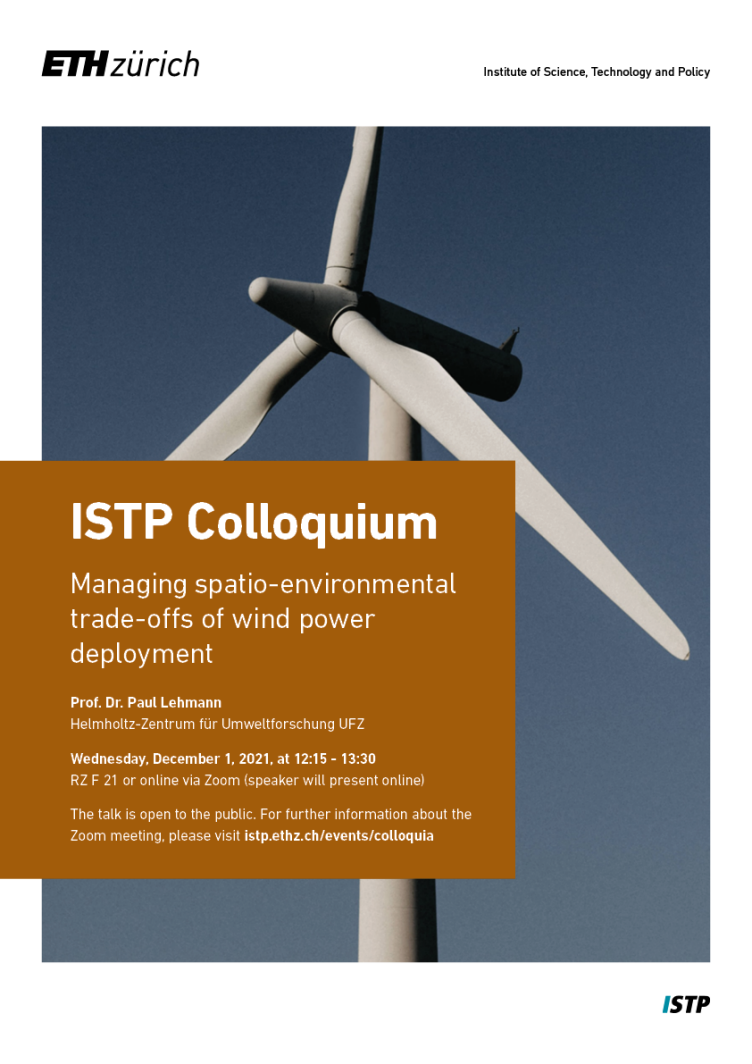Colloquium: Prof. Paul Lehmann
Wednesday, Dec 1, 2021, at 12.15 - 13.30
Online, Zoom | Sign up here
Given the current situation of the pandemic, there will be no video screening in the lecture hall. To take part online, please register to get the Zoom link. Thank you very much for your understanding.
Managing spatio-environmental trade-offs of wind power deployment

The deployment of onshore wind power is an important means to mitigate climate change. However, wind turbines also have negative impacts at the local scale, like disamenities to residents living nearby, changes in landscape quality, or conflicts with nature conservation.
In a first step, I will discuss how spatio-environmental impacts affect the optimal siting of wind turbines, as compared to a spatial allocation focused solely on minimizing generation costs. To quantify the spatial trade-offs between different sustainability criteria, I will propose a novel approach using Pareto frontiers and a Gini-like potential trade-off indicator. This analysis builds on a spatial optimization model using geographical information system data for Germany. The analysis reveals that spatial trade-offs between the sustainability criteria under consideration are significant. The size of the trade-off varies substantially with the criteria under consideration, depending on the spatial heterogeneity of each criterion as well as on the spatial correlation between the criteria. Spatial sustainability trade-offs are particularly pronounced between nature conservation (measured by impacts on wind power-sensitive birds) and other criteria.
In a second step, I will analyze challenges arising for decision-making if wind power generation capacity has to be allocated spatially in the presence of spatial sustainability trade-offs. The analysis is based on a participatory multi-criteria analysis that involved stakeholders in Germany. Stakeholders were asked to play a serious game during which they had to allocate wind power generation capacity to German states. The results of the serious game illustrate that there is no unanimously agreed ranking of sustainability criteria among the participating stakeholders. They disagreed not only on the weights of different criteria but also their definition and measurement. Group discussions further revealed that interregional equity concerns mattered when generation capacity was allocated to states. Yet, stakeholders used quite different concepts of interregional equity, including approaches of both distributional and commutative justice. The results support the importance of transparent, multi-level and participatory approaches to take decisions on the spatial allocation of wind power generation capacity.